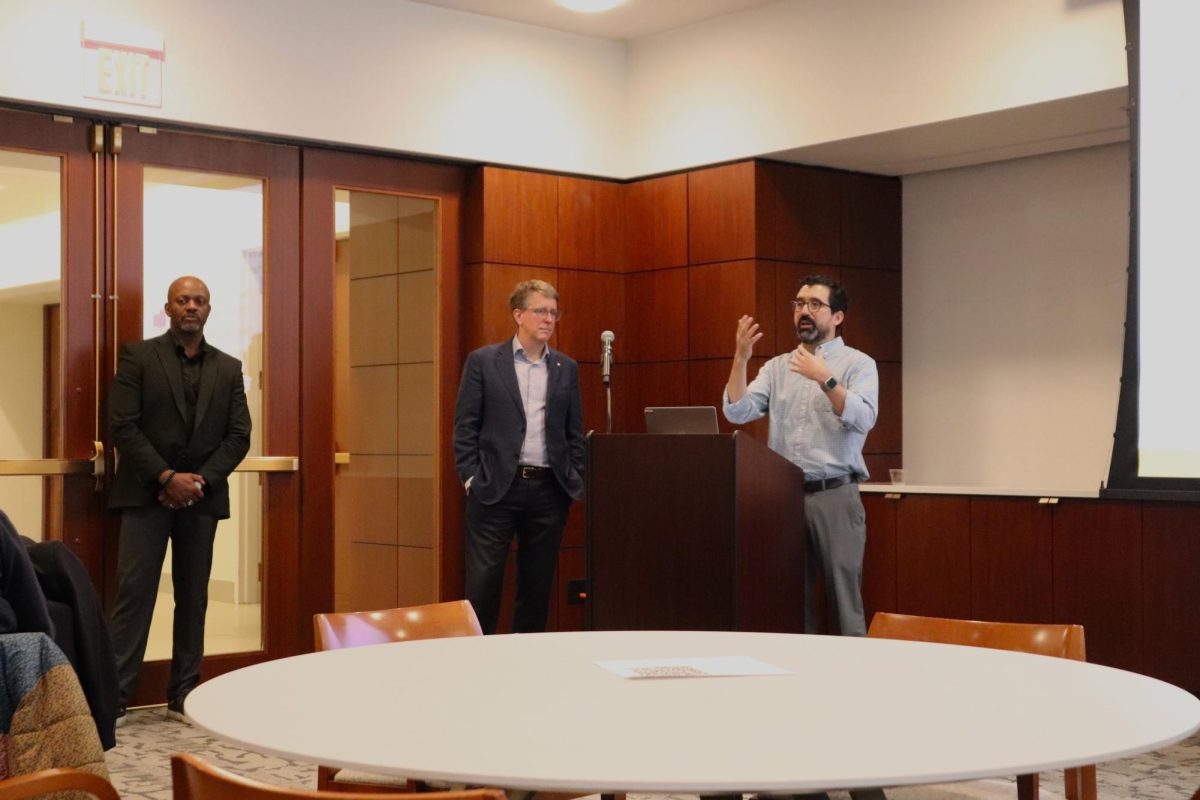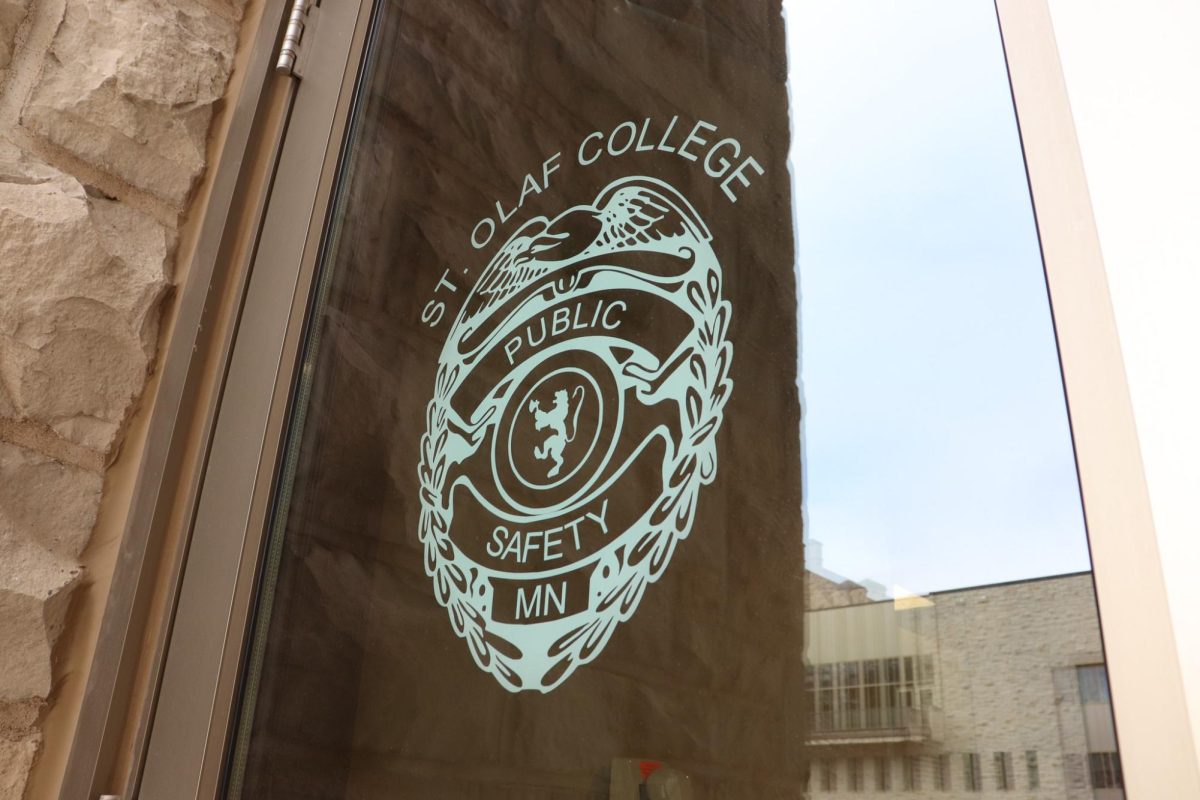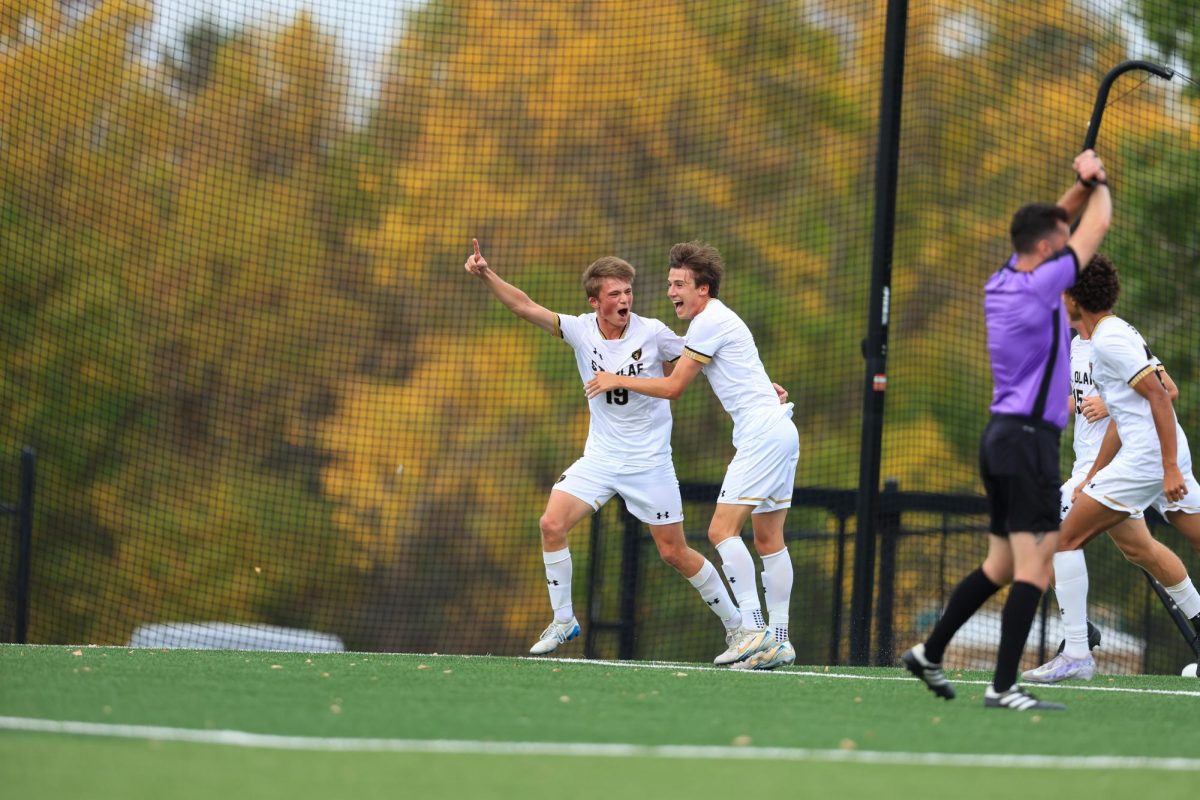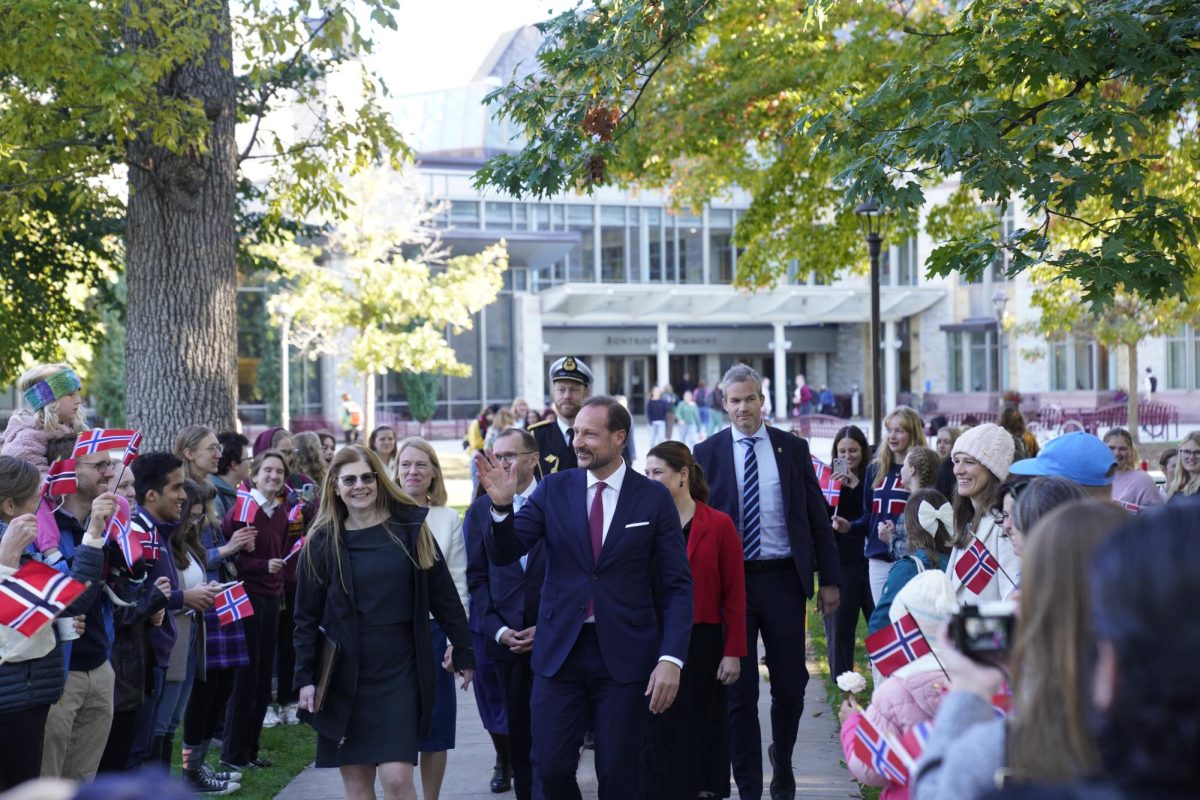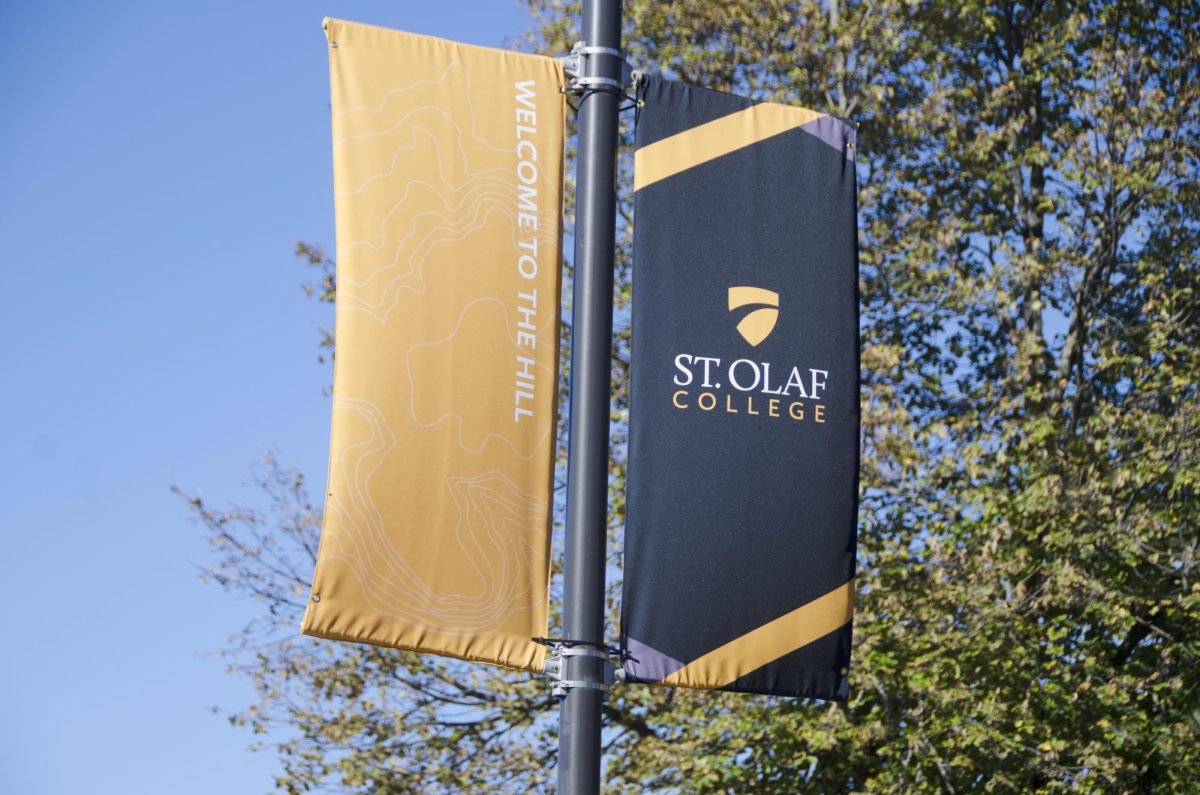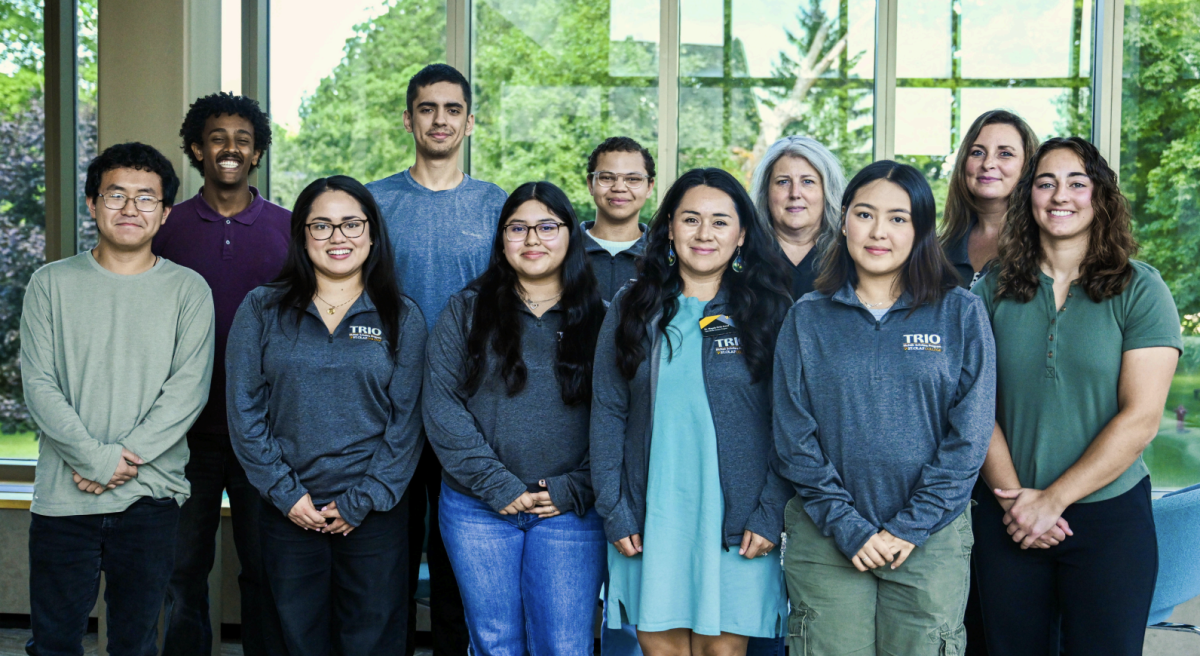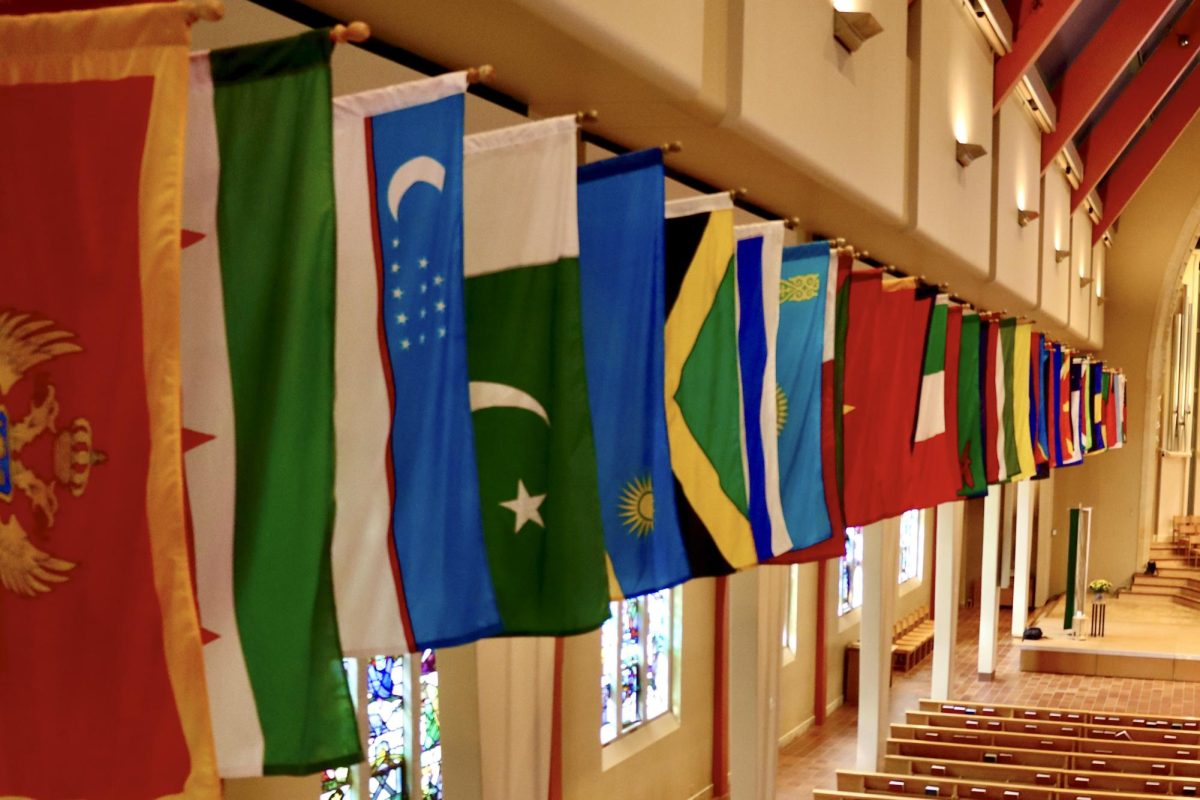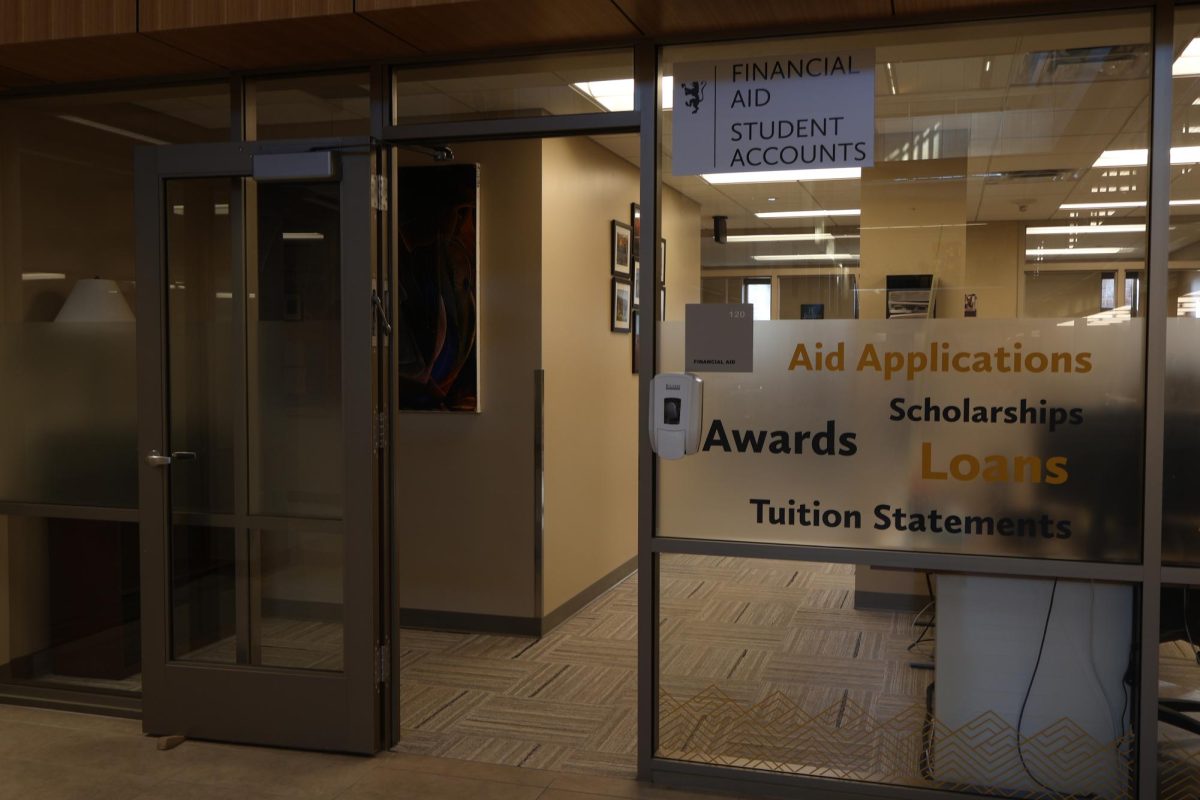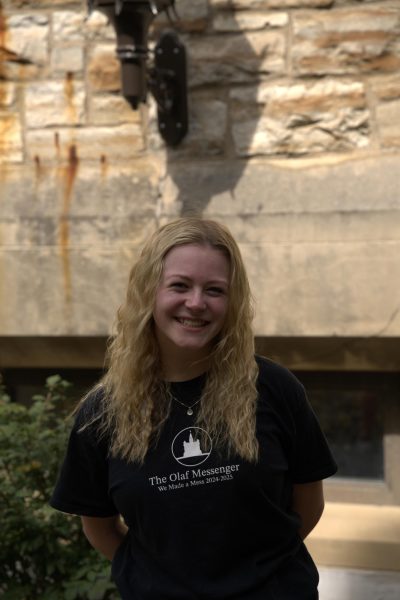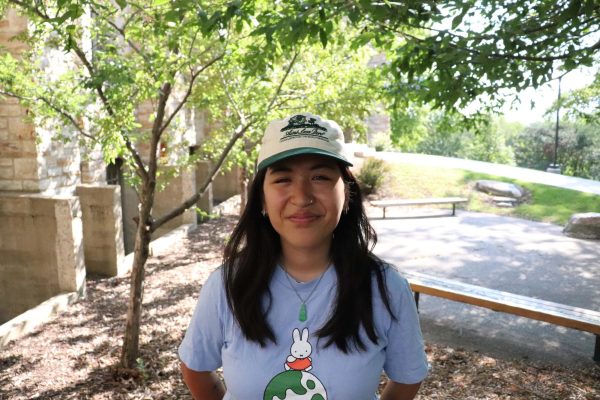On March 19, the St. Olaf President’s Leadership Team hosted a talk surrounding St. Olaf and recent federal policy changes. Vice President for Student Life Hassel A. Morrison, Vice President and General Counsel and Interim Human Resources Lead Carl Crosby Lehmann ’91, and Vice President for Community and Belonging Eduardo Pazos Palma hosted the talk.
“We’re going through some of the executive orders, actions, and presidential priorities from the federal administration just so you see the way that we are understanding, categorizing, and making sense of them,” Pazos Palma said, beginning the talk.
The talk covered diversity, equity, and inclusion (DEI), gender, and immigration policies, as well as what the administration is doing for students.
Pazos Palma emphasized that these executive orders are not law.
“As an employer, the federal government has a lot of power for the things they can do for their employees,” Pazos Palma said. “As a private institution, we [St. Olaf] are not an employee of the federal government, so not all of these executive orders have the exact same weight as they do for other institutions.”
Surrounding DEI, Crosby Lehmann continued.
“There has been a lot of conversation about this topic [DEI], but not a lot of action,” Crosby Lehmann said. “One of the big things is making sure that programs and activities that the college has does not discriminate against individuals’ gender, race, age, disability, [and] all sorts of legally protected statuses.”
Regarding gender policy, Pazos Palma continued the talk.
“There was an executive order that defined that there are only two sexes, male and female, expressed by XX or XY chromosome genes,” Pazos Palma said. “Again, executive orders are not law.”
Crosby Lehmann weighed in about Minnesota state policy.
“Minnesota’s Human Rights Act prohibits us from discriminating against gender identity and gender expression,” Crosby Lehmann said.
Changes in Title IX include reverting back to a hearing process, in which Pamela McDowell can be reached out to in regards to additional information.
In regards to immigration policy, there are potential new travel bans, and it is important to note that travel bans do not typically apply to those with current visas. This would not affect current students.
“A practical thing before you leave the country, [is to] do a status update on where things are at. Where students are most vulnerable is when you have left [the country] and are wanting to come back in,” Crosby Lehmann addressed.
Students in attendance weighed in with the significance of St. Olaf hosting this talk.
“This [talk] is not really just to inform about St. Olaf’s position or St. Olaf’s doing, but it’s also to express that St. Olaf cares about being transparent and also about your questions,” Reece Howell ’27 said.
“I think the most notable thing about the current administration is the speed and the quantity of the things that they’re changing. I think it can be easy to get lost and disoriented and not know what’s going on; to only have an emotional perspective and not actually be hearing about the facts that are relevant to this community,” Julian Colville ’25 said. “This is within our sphere of what actually matters to us and what we can do something about.”
Pazos Palma wanted to emphasize student prioritization.
“This is something that we’re keeping a close eye on in our community to make sure that all of our students feel safe,” Pazos Palma said.
